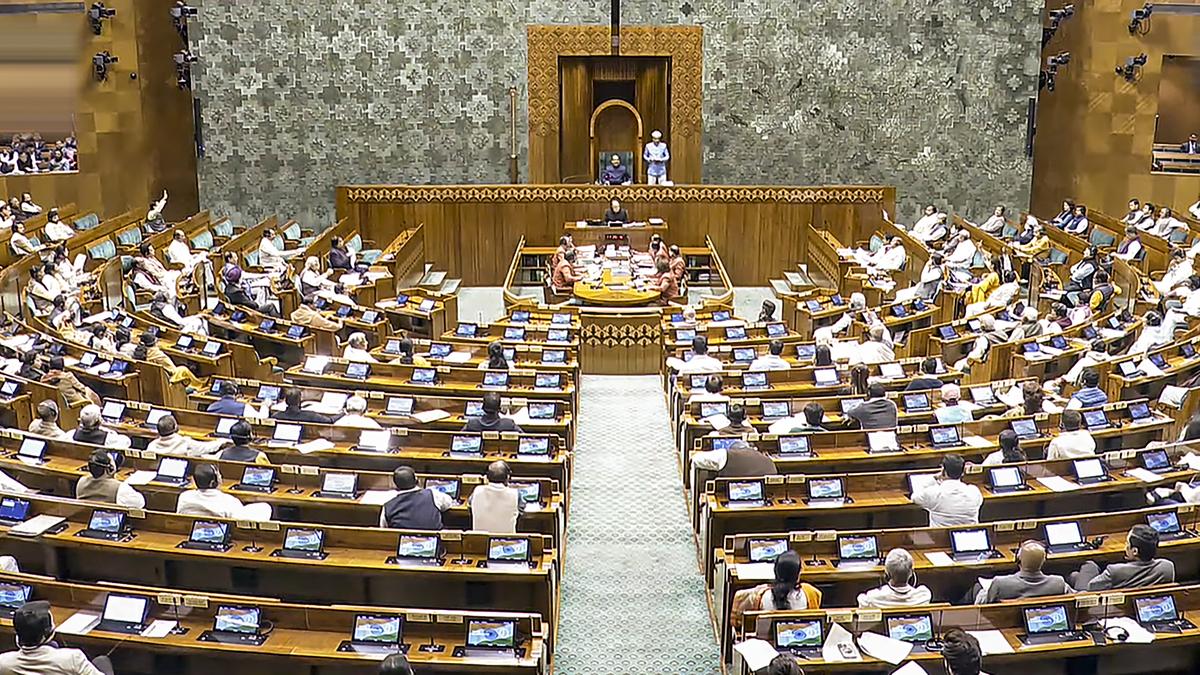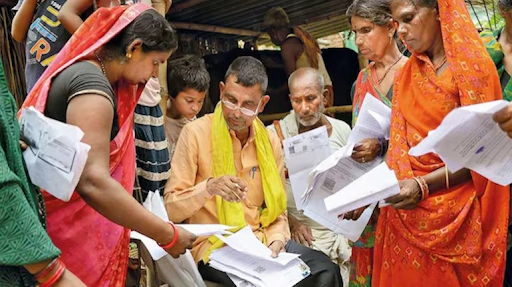



Dynastic politics in India, with 21% MPs/MLAs from political families (ADR 2025), highlights family dominance over democracy. Though it offers continuity, it weakens meritocracy, governance, and trust. With no constitutional ban, reforms like inner-party democracy, electoral funding transparency, and voter literacy are essential for merit-driven governance.

Copyright infringement not intended
Picture Courtesy: THE HINDU
The Association for Democratic Reforms (ADR) report indicating that over one-fifth of elected representatives are the product of Dynastic Politics
Definition: Dynastic politics refers to the dominance of political power by families or lineages, where positions of leadership and electoral success are inherited across generations rather than earned through merit or broad-based support.
In India, major parties like Congress, BJP, and regional (e.g., SP, DMK), have around 21% of 5,204 sitting MPs, MLAs, and MLCs from dynastic backgrounds as per ADR's 2025 analysis.
Colonial Legacy: British-era politics saw families like the Nehrus consolidate influence through alliances and patronage, a pattern staying post-independence.
Post-Independence Consolidation: Nehru-Gandhi family's leadership in Congress set a precedent; regional parties (e.g., Karunanidhi in DMK) mirrored this in states.
Party Structures: Family-controlled parties (e.g., Shiv Sena under Thackerays) use hereditary succession to maintain unity and loyalty.
Historical Factors: Feudal landownership and caste networks in rural area facilitated family-based mobilization of voters.
Name Recognition and Vote Banks: Established surnames evoke trust and familiarity, reducing campaign costs; e.g., 31% Lok Sabha MPs are dynasts.
Resource Access: Families control party funds, media, and infrastructure, giving incumbents an edge in elections.
Weak Intra-Party Democracy: Lack of primaries or open contests allows leaders to handpick relatives as successors.
Social and Cultural Norms: Family ties symbolize stability amid caste, religion divides; e.g., Andhra Pradesh's 34% dynastic share highest in the country.
Financial resources: Dynastic political families control greater financial resources, which are essential for conducting expensive election campaigns.
High probability of winning: Parties field dynastic candidates due to their perceived electability and higher vote share.
Erosion of Meritocracy: Established dynasties hamper the rise of fresh leaders and ideas by concentrating control within a few families, creating a system where loyalty and lineage override competence.
Economic Stagnation: Dynastic rule suppress economic growth by favoring family businesses and limiting competition, creating a closed economic ecosystem that prioritizes familial interests over public welfare.
Gender Inequality: Dynastic women inherit political power through male relatives, rather than merit. Instead of challenging patriarchal structures, they reinforce them, becoming placeholders for family interests rather than independent leaders advocating for gender equality.
Voter disengagement: Apathy and voter fatigue set in when citizens perceive that their choices are limited to members of the same powerful families.
Exacerbated inequality: Dynastic politics increase social and economic inequality by concentrating power and resources within a limited elite.
|
Positive Arguments (Counter-Perspective) Stability and Experience: Dynasts bring political understanding and continuity, ensuring effective governance. Mobilization Efficiency: Family networks enable quick voter outreach in India's vast landscape, enhancing representation. Cultural Resonance: In a tradition-bound society, dynasties represent continuity, promoting loyalty and reducing factionalism. Global Parallels: Even in democracies like the US, dynasties coexist with merit, suggesting they're not inherently undemocratic, as they are elected by voters. |
Mandate Primaries: Amend the Representation of the People Act, 1951, to require political parties to conduct transparent internal elections or primaries for candidate selection, reducing family-based nominations.
Term Limits: Introduce caps on the number of terms a family member can contest from the same constituency or within a party leadership role, ensuring fresh talent emerges.
Digital Candidate Profiles: Create an ECI-managed portal detailing candidates’ backgrounds, including dynastic ties, to inform voters, similar to ADR’s MyNeta platform.
Cap Expenditures: Enforce strict limits on campaign spending to reduce the financial advantage dynasts leverage through family wealth and networks.
Public Funding: Explore partial state funding of elections, as suggested in the Indrajit Gupta Committee Report (1998), to level the playing field for non-dynastic candidates.
Learn from Global Best Practices: Adopt transparent systems like US, where open candidate selection reduces dynastic control (e.g., Democratic Party primaries).
Dynastic politics, affecting 21% of India's legislators, reveals a tension between tradition and democratic ideals. High dynastic shares in Uttar Pradesh and Andhra Pradesh pose risks to meritocracy and inclusivity. Addressing this requires electoral reforms, party democratization, and voter empowerment.
Source: THE HINDU
|
PRACTICE QUESTION Q. Analyze the impact of dynastic politics on democratic accountability in India. 150 words |
It refers to political power concentrated in families, with 21% of MPs, MLAs, and MLCs from dynastic backgrounds (ADR, 2025).
Andhra Pradesh, with 34% of its 255 MPs, MLAs, and MLCs from political families.
It undermines meritocracy, reduces accountability, and limits political pluralism.



© 2026 iasgyan. All right reserved